The profiles are arranged alphabetically by their last name.
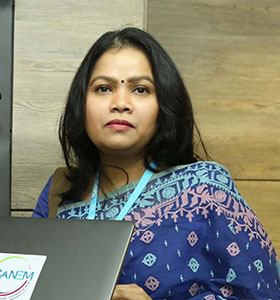
Dr Sayema Haque Bidisha
Professor of Economics
University of Dhaka and
Research Director, SANEM
Dr Sayema Haque Bidisha is a professor in the Department of Economics, University of Dhaka. She did her bachelors as well as masters from the Department of Economics, University of Dhaka and MSc. from the University of Bath, UK. She obtained a PhD in Labour Economics from the University of Nottingham, UK. Her research interest lies in labour economics, development economics, population economics and micro econometrics. Her work involves both empirical analysis as well as policy focused research with emphasis on developing countries. In the context of Bangladesh, she worked on a number of research projects on labour market, gender and women empowerment, gender budgeting, migration and remittance earning, credit and food security, population and development, economic growth and exchange rate movements, skill and education, demographic dividend and youth population etc. In addition, Dr. Bidisha has also worked closely with the Government of Bangladesh in preparing various policy documents and government flagship objects. In particular, she was actively engaged in drafting a number of chapters of the 6 th Five Year Plan of Bangladesh (e.g. Education and Training, Agriculture, Health and Nutrition) and also Perspective Plans of the country. She has worked with several international as well as national organisations e.g. the World Bank, IDRC, ILO, FAO, UNICEF, DFID etc. and has published a number of articles/book chapters in peer reviewed publications both at home and abroad.
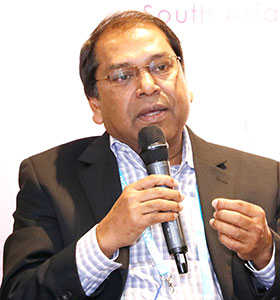
Dr Bazlul Haque Khondker
Professor of Economics
University of Dhaka and
Chairman, SANEM
Dr. Bazlul Haque Khondker is a Professor at the Department of Economics, University of Dhaka and Chairman of the South Asian Network on Economic Modeling (SANEM). He holds a PhD degree in Economics and MSc degree in Quantitative Development Economics from the University of Warwick, England. He has more than 27 years of experience in the field of development economics and planning. His areas of expertise include analysis of poverty and social protection; micro, meso and macro data analyses for impact assessment and policy formulation; estimating economic cost of violence against women and girls; identification of regional disparities as well as promoting broad based inclusive growth; assessment of the distributional impacts of tax policy (including social protection) reforms using static as well as dynamic macro models as well as micro-simulation models; and assessing the trends in inter-generation equity using the National Transfer Account (NTA) methodology. He has also formulated the technical framework for the Five Year Plans for Bangladesh involving growth projection, macro consistent projection for sectoral growth, employment and poverty. He has constructed Social Accounting Matrices (SAM) and Computable General Equilibrium Models for several countries for analysis of poverty and income distribution impacts of trade and tax policy reforms. He has produced several reports and published articles, books on social issues including poverty and social protection, economic cost of violence against women and girls, regional disparity, economic and welfare impacts of public policy reforms. He has presented his analytical works in conferences held in Dhaka, The Hague, Quebec City, Kampala, Bangkok, Phnom Penh, Ulan Bator, Singapore, Kathmandu, Colombo, Nairobi, Abuja, Yaoundé, Maseru (Lesotho), Caracas, Mexico City, Hawaii and Boston organised by organisations such as UNDP countries offices, UNDP regional centres in Asian and Africa, the World Bank, the Asian Development Bank, the International Labour Office, East West Centre and the Central Bank of Venezuela. He has also worked in Mongolia (with UNDP/ADB); Indonesia (ILO); Sri- Lanka (UNRBAP); Bhutan (UNDESA); Morocco (the World Bank); Lesotho (UNICEF); Vietnam (UNDP); the Philippines (HelpAge International); Myanmar (HelpAge International); Hawaii (East West Centre); and Venezuela (the Central Bank of Venezuela).
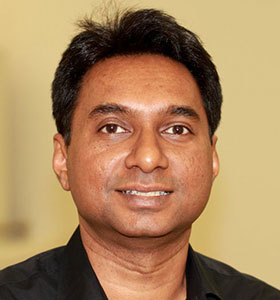
Dr Selim Raihan
Professor of Economics
University of Dhaka and
Executive Director, SANEM
Dr Selim Raihan is Professor at the Department of Economics, University of Dhaka, Bangladesh and the Executive Director of the South Asian Network on Economic Modeling (SANEM). He holds a PhD from the University of Manchester, UK.
He is the Honorary Senior Research Fellow at the University of Manchester, UK. He is the alumni of the Harvard University’s program on “Cutting Edge of Development Thinking”. Dr Raihan possesses vast expertise in empirical research on international trade, economic growth, poverty, labour market, macroeconomic policies, political economy, and climate change issues. He has worked quite extensively on applied economics, especially assessing impacts of trade and economic policies, using country- specific and global Computable General Equilibrium (CGE) models, and micro and macro-econometric modelling and estimation techniques. He has a long experience in teaching international trade, economic modelling, quantitative economics, econometrics, development economics, and poverty dynamics. He has more than 15 years of experience in conducting international and national training programmes on economic modelling in various countries, including Bangladesh, India, Nepal, Mongolia, Senegal, Sri Lanka, and Thailand. Dr Raihan has published several journal articles, books, book chapters and working papers.
Dr Raihan is the editor of “Thinking Aloud” – a monthly digest from SANEM. He regularly writes columns in leading English and Bengali dailies in Bangladesh. Dr Raihan contributed extensively to the preparation of the Sixth and Seventh Five-year National Plans of Bangladesh. He led a research team to prepare the “SDG Financing Strategy: Bangladesh Perspective” -a flagship publication of the Planning Commission of Bangladesh. Dr Raihan has worked for several national and international organizations including the Asian Development Bank, the World Bank, UNDP, UNESCAP, UNCTAD, IFPRI, the Commonwealth Secretariat, FAO, European Commission, ILO, IDRC, DFID, etc. He has led and has also been a member of a number of regional and international research projects on trade and regional integration issues. Also, he has been working on the political economy analysis of economic issues. The most recent ones are the studies on “Institutional Diagnostics of development in Bangladesh “, which are prepared under his leadership and supervision, for the DFID, UK.
Dr M. A. Razzaque
Director (Research)
Policy Research Institute of Bangladesh
Dr M. A. Razzaque is a trained economist specializing in applied trade and development issues with extensive senior leadership and management experience at international level. During 2012-17, he was Head of International Trade Policy at Commonwealth Secretariat, London, directing its policy and global advocacy work related to emerging issues in world trade, trade negotiations, Aid for Trade, global value chains, trade between Commonwealth members, Brexit and its implications, etc. He was also the editor of Trade Hot Topics, one of the most widely read Commonwealth publication series. He has considerable experience in teaching international trade, development economics, and econometrics both at undergraduate and graduate levels as a faculty member of Economics Department at Dhaka University during 1998-2007. He has led and managed several multi-country (involving sub-Saharan African, South Asian, Caribbean and Pacific economies) and country-specific research projects on trade and development. Results of these projects have been documented in academic research articles, policy briefs, and as chapters in edited volumes. He possesses vast experience of organising international events, conferences, and workshops. He is regularly invited to speak as a panelist in international and regional events. He has presented papers in academic seminars; made presentations on conference/workshop themes; commented on technical and policy papers as a designated discussant; briefed senior government officials; and conducted training workshops on trade and development policy issues. He has also been called to provide evidence before House of Lords and House of Commons Committees (of the UK Parliament). Amongst others, his research was cited in The Economist, and, most recently, his analysis on implications of Brexit was published in many newspapers and online media outlets in several countries. He was the lead author of the first ever Commonwealth trade flagship report “The Commonwealth in the Unfolding Global Trade Landscape” the findings of which have been widely quoted, including in UK parliamentary debates.
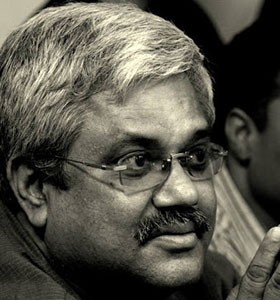
Dr Saikat Sinha Roy
Professor
Department of Economics
Jadavpur University, Kolkata, India
Dr Saikat Sinha Roy is a Professor at Department of Economics in Jadavpur University, Kolkata, India. He is also the Joint Director of School of International Relations and Strategic Studies (SIRSS). He obtained his Ph. D. in Economics from Centre for Development Studies, Trivandrum, JNU, INDIA. His fields of specialization include applied trade and development, open economy macroeconomics, trade modelling and applied economics. He has published more than 20 articles, papers, working papers. He has authored and edited several books and book chapters.
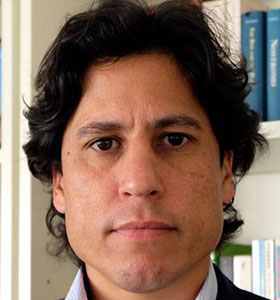
Dr Sher Verick
Head, Employment Strategies Unit
Employment, Labour Market and Youth Branch, ILO, Geneva
Dr Sher Singh Verick is Head of the Employment Strategies Unit in the Employment, Labour Market and Youth Branch in the ILO, Geneva. Prior to this position, he was Manager of the Employment Policy and Analysis Programme (EPAP) of the International Training Centre of the ILO and Deputy Director of the ILO Decent Work Team for South Asia and Country Office for India. He has also worked for the United Nations Economic Commission for Africa and various research institutions in Europe and Australia. He holds a master’s degree in development economics from the Australian National University and a doctorate in economics from the University of Bonn. Since December 2004, he is a Research Fellow of the Institute for Labor Economics (IZA). Through various roles, he has led and undertaken policy-oriented research and training to promote the formulation and implementation of more effective employment policies. He has published in a range of journals and has authored or edited a number of volumes including, Transformation of Women at Work in Asia: An Unfinished Development Agenda (2016), Perspectives on Labour Economics for Development (2013), and the Labour Markets of Emerging Economies (2013).
